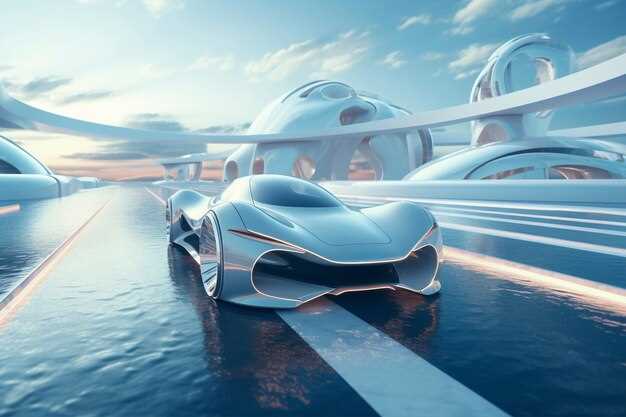
The world of motorsport is undergoing a seismic shift as electric vehicles (EV) continue to gain traction, redefining the landscape of racing. This transformation is not merely a trend; it’s a significant evolution that brings with it innovative technologies, new competition formats, and an environmentally conscious ethos that appeals to a broader audience. The rise of electric race cars marks a pivotal moment in the history of competitive racing, blending speed with sustainability.
As manufacturers invest heavily in electric propulsion technologies, teams are embracing the challenge of creating high-performance vehicles that can compete at the highest levels. The introduction of electric race series, such as Formula E, has highlighted the potential of EV technology, showcasing not only the power and efficiency of these vehicles but also the exciting race dynamics they can produce. This shift is fostering a new generation of engineers and drivers who are eager to push the boundaries of what’s possible in the realm of motorsport.
Moreover, the sustainability aspect of electric racing is drawing attention from fans and sponsors alike. As environmental concerns become increasingly pressing, the integration of electric vehicles into traditional motorsport disciplines presents a compelling narrative of progress and responsibility. The evolving landscape encourages dialogue around green technologies and their role in the future of motorsport.
How EV Racing Technology Enhances Performance and Safety
Electric vehicles (EVs) have significantly transformed the landscape of motorsport, introducing advanced technologies that enhance both performance and safety. The fundamental change in powertrains allows for instantaneous torque delivery, providing quicker acceleration and improved responsiveness on the track. This characteristic not only boosts overall speed but also gives drivers a competitive edge during critical moments of a race.
Battery technology plays a vital role in the development of EV racing. High-capacity, lightweight batteries enable teams to achieve greater energy density, resulting in longer-lasting performance without sacrificing speed. Innovations such as rapid charging systems have also emerged, allowing for shorter pit stops and maintaining the pace throughout the competition.
In terms of safety, EV racing technology contributes to enhanced vehicle stability and traction control. Advanced algorithms manage power distribution to all wheels, optimizing grip in various conditions. This capability reduces the likelihood of skidding or losing control, ensuring a safer driving experience for competitors.
Furthermore, the focus on aerodynamics and lightweight materials in EV design not only improves performance but also contributes to safety. Constructing vehicles with stronger, more resilient materials protects drivers during collisions, while efficient aerodynamic profiles reduce drag, allowing for greater speed and maneuverability on the track.
Overall, the rising prominence of EVs in motorsport is leading to a new era where cutting-edge technology continuously pushes the boundaries of performance while prioritizing safety. As racing evolves, the integration of these advancements promises to redefine the excitement and competitiveness of motorsport events around the world.
The Impact of Sustainable Practices on Electric Motorsport Events

As electric racing gains momentum, the integration of sustainable practices is reshaping the landscape of motorsport. These practices are not only essential for environmental preservation, but they also enhance the overall racing experience for fans, teams, and sponsors. Traditional motorsport events often faced criticism for their carbon footprints, but electric racing offers a fresh perspective by promoting cleaner technologies.
Sustainable practices in electric motorsport encompass a broad range of initiatives, from utilizing renewable energy sources for charging vehicles to implementing efficient waste management systems at events. By prioritizing sustainability, organizers can significantly reduce the environmental impact associated with large-scale racing. For example, many electric racing series now aim to power their operations with solar or wind energy, showcasing a commitment to green energy and inspiring fans to consider their own environmental choices.
Moreover, sustainable practices in electric racing can spur innovation in vehicle technology and performance. Manufacturers are compelled to focus on developing batteries with better energy efficiency and longer lifespans, which can ultimately translate into advancements in road vehicles. Additionally, the emphasis on sustainability encourages collaboration between automotive companies, tech startups, and research institutions, fostering an ecosystem where electric motorsport can thrive alongside groundbreaking technological advancements.
The shift towards sustainable initiatives also enhances the brand image of competing teams and sponsors, making them more attractive to environmentally conscious consumers. As the audience becomes increasingly aware of climate issues, they show preference for events that demonstrate strong commitments to sustainability. This not only elevates the visibility of electric racing but also creates a more engaged and passionate fanbase.
In conclusion, sustainable practices have a profound impact on electric motorsport events, driving innovation, enhancing fan engagement, and reducing environmental harm. As the industry continues to evolve, these initiatives will play a crucial role in defining the future of racing, making it a more responsible and exciting form of competition.
Key Innovations in Electric Motorsports: What to Expect in the Next Decade

As the world shifts towards sustainability, electric vehicles (EVs) are rapidly transforming the landscape of motorsport competition. In the next decade, several key innovations are expected to shape the future of racing.
Battery Technology Advancements: The heart of electric racing lies in battery performance. Upcoming innovations in battery chemistry, such as solid-state batteries, promise higher energy density and faster charging times. This will enable longer race durations and reduce pit stop times, enhancing overall competitiveness.
Enhanced Powertrains: Electric motors are evolving to provide higher output with enhanced efficiency. Multi-motor setups and advanced energy recovery systems will allow EV racing cars to achieve unprecedented acceleration and top speeds. Expect significant improvements in thermal management systems to maximize performance during races.
Aerodynamic Developments: Aerodynamics play a crucial role in racing. Future electric race cars will utilize advanced simulation technologies and materials to create more efficient designs. Innovations such as active aerodynamics will adapt in real-time to optimize downforce and drag, thereby improving track performance.
Smart Connectivity: The integration of advanced data analytics and IoT in electric racing will lead to smarter race strategies. Teams will leverage real-time telemetry and machine learning to optimize vehicle performance on-the-fly, enhancing decision-making during competitions.
Popularity of Electric Racing Series: As fan interest in sustainable racing grows, new electric racing series will likely emerge. Events will showcase cutting-edge EV technology and attract both traditional racing enthusiasts and environmentally-conscious spectators, potentially leading to a more diverse audience.
Regulatory Innovations: As electric racing evolves, regulatory bodies will continue to adapt rules to ensure fair competition and promote technological advancement. Expect new regulations that address battery recycling, emissions reductions, and sustainable materials in race car construction.
In summary, the next decade of electric motorsports promises remarkable innovations that will redefine racing dynamics, enhance environmental sustainability, and captivate audiences worldwide.










